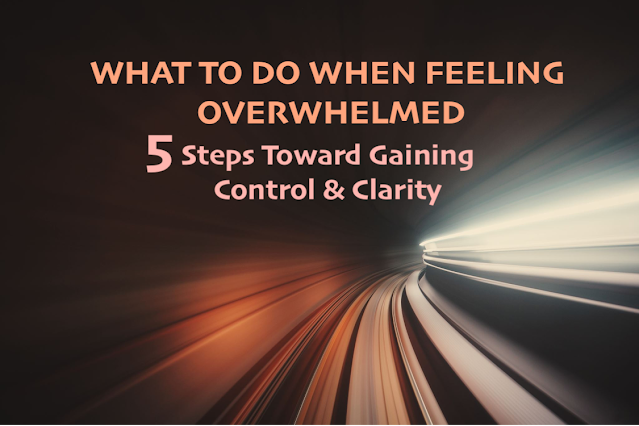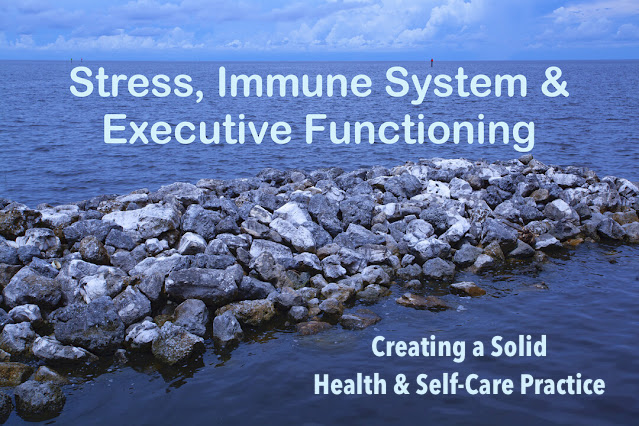FOCUS: THE DRIVER OF SUCCESS How to Minimize Your Distractions and Achieve Your Goals
If consistent, you will get it.
If persistent, you will keep it.
Focus, an important mental asset, is directed attention. In our ever growing complex and distracted world, our ability to focus is diminishing dramatically, and this is affecting learning and retention of material, deep thinking, and problem solving. Bombarded by interruptions throughout our day from notifications, pings, and vibrations emanating from our digital devices, we barely can settle down and approach a task long enough before becoming interrupted. This consistent shift in attention is creating executive functioning fatigue, which in turn compromises our decision making abilities. In order to accomplish great things, discerning between productivity and busy-ness is crucial. Productivity requires clarity, while busy-ness does not. Busy-ness generally has no substantive end -goal in sight.
Many are busy. Few are focused. Our brains love and seek focused attention. It's our primary pathway to entering into our flow state or getting into the zone; the place of deep concentration in which time seems to slow way down and we become deeply immersed in an activity or project that fully energizes us. When our attention is in the present moment and on task, we experience optimal cognitive functioning and peak performance. Upon exiting this heightened focused state, there is a deep sense of fulfillment.
Focused attention is the brain's ability to actively focus on a target stimulus (or one thing) without being distracted by other stimuli.
Often, our go-to strategy for enhancing our focus is to tell ourselves to focus, with the illusion that issuing oneself a command to pay attention or concentrate will somehow do the trick. Unless the activity is incredibly interesting to you, your ability to apply focused attention works similarly to your muscles. To grow them, you must use them. High performers in their respective fields have arduously worked to hone their power of focused attention, by intentionally harnessing a wandering mind. They excelled because they were able to push through the tedious and repetitive basic drills to achieve mastery, and ultimately FOCUS!
Keep in mind that telling yourself to focus when your mind wanders, in and of itself, is generally not an ineffective first step because it rarely solves the focusing challenge. To leverage focusing, the following tools are offered:
1. MINIMIZE YOUR DISTRACTIONS
Declutter & Organize your space: Our brains operate better in an uncluttered and organized environment, as it helps to eliminate or drastically reduce visual distractions. Minimalization is an asset.
Manage Digital Notifications: When you need to study or apply deep, focused thinking, remove interruptions. Whereas in the past, interrupters were typically co-workers stopping by at inopportune times to ask questions or chat, today's massive interrupters are our digital devices. Each and every time you divert your attention, even for just seconds, to look at your phone, you will require minutes of re-focusing time to get back to the task at hand. These minutes add up. This back-and-forth shifting quickly tires the brain and it will operate slower and slower with each sequential interruption. Try to work in pre-set increments of 30, 45 or 60 minutes before taking a break.
Create a checklist: Our brains love checking things off. Create a check list of things you'll need to do or take action on. Writing and planning on a sheet of paper, in which you will have the opportunity to check items off as they're completed is a powerful and unfortunately under-utilized strategy for gaining clarity, getting things off the ground, and finishing tasks and assignments.
Planning on paper is a powerful focusing tool. Dopamine, the "feel good" neurotransmitter feels good when checking things off. Think back to the stickers you earned when in preschool or kindergarten for your efforts or for your good work/behavior.
2. GET RESTORATIVE SLEEP
Our modern world blurs the boundaries between day and night; between the diurnal and the nocturnal. A staggering and growing number of sleep deprived and caffeine infused individuals is resulting in hormonal imbalances, compromised immune systems, and executive functioning fatigue. While sleep research continues to expand and attract the attention of neuroscientists, it is still very much in its developing stages. The research, however, strongly supports that restorative sleep is vital for cognitive processes such as paying attention, focusing, and learning.
- Your bedroom should be cool and dark, and free from distracting noise and devices. Some find white noise or background sounds of nature soothing.
- Establish a relaxing bedtime routine. A nightly meditation practice can do wonders for stress management, and help you feel calm and serene. Dim the lights and gradually remove yourself from screens and the lights originating from devices and electronics.
- Attempt to go to bed and wake up at the same time each day.
3. POWER YOUR MIND & BODY
Nutrition A healthy diet has positive effects on mental health and executive functioning. If you are already in the habit of eating real food, mostly plant based, and within reasonable caloric portions, then continue. If not, then this may be a good time to re-assess your diet and make changes that are best for you.
- Dietary supplementation may be helpful, and is individual to each person's specific needs.
- Avoid overly processed foods and sugar. Both can spike levels of fatigue that will ultimately affect your powers of concentration.
- Enjoy coffee but be mindful of its effects on your body. Whereas caffeine is a globally enjoyed stimulant with well documented cognitive enhancing properties, its use must be determined on an individual basis. What's great for many is not appropriate for all.
- Hydrate. Keep your energy levels humming by drinking plenty of water. If flavoring your water will help you drink more, then add lemon, mint, and/or cucumber.
Exercise
There is no scarcity of studies showing a positive correlation between engaging in moderate exercise and improving cognitive functioning. The minimum requirement is 150 minutes per week.
- The exercise regimen should include cardio, weight lifting and stretching for optimal benefits.
- Exercise releases endorphins, which trigger a positive feeling in the body that typically lasts for most of the day. This good feeling helps to mitigate the effects of stress, which, when chronic, decrease attention span and focusing.
4. MAXIMIZE MINDFULNESS
Mindfulness is the act of paying attention to the present moment with a non-judgmental attitude and an open acceptance. In essence, it is being fully present.
In our busy worlds, where multi-tasking has become synonymous with efficiency and productivity, we find ourselves buried under the pressure of a never ending To-Do list and time constraints that create a dysregulated and unbalanced life.
Research has well documented that mindfulness techniques help improve a plethora of physical complaints, such as lowering blood pressure and alleviating gastrointestinal distress. Developed at the university of Massachusetts Medical Center in the 1970s by Professor Jon Kabat-Zinn, mindfulness-based stress reduction (MBSR) is an 8-week evidence based curriculum that offers mindfulness instruction to help individuals better manage stress, depression, and pain. It combines meditation with Hatha yoga and it teaches how to use mindfulness in daily life in order to cope with stressors.
Whereas meditation is a system intended to bring about a heightened state of awareness and focused attention, mindfulness describes a specific manner of living that is cultivated through this system. Meditation is a process that allows you to slow down; to go inwardly, accessing deeper insights. In contrast to a time-out, it is a time-in.
The regular and consistent practice of meditation, even for just 10 minutes per day, has been shown to increase volume in brain regions. Couple that with a mindfulness philosophy as you go about your day and you will find an increase in your ability to focus; both for longer periods of time and with greater depth.
Visit some of this blog's posts on more in-depth information on the various topics presented here and remember- Productivity is about getting the right things done and strategically moving forward toward worthwhile goals.
Peak productivity requires managing our energy and not just our time.
DIRECT YOUR ENERGY
FOCUS
The information presented in this blog is intended for general knowledge
and is not a substitute for medical advice or treatment.
REFERENCE
Kabat-Zinn, John. (2021). www.mindful.org
If you enjoyed this article and would like to read more, then let's connect:
FACEBOOK: Marie Therese Rogers
LIFE IN FOCUS
Atlantic Behavioral Health Professionals
LINKEDIN: Marie T. Rogers, Ph.D.
INSTAGRAM: Mariethereserogers
PODCAST:















Comments
Post a Comment